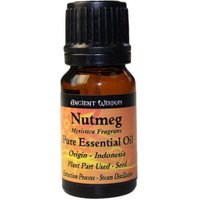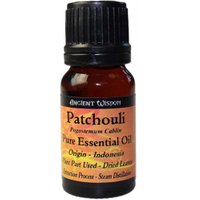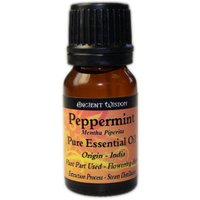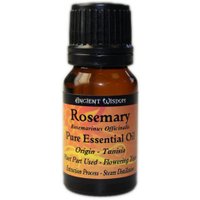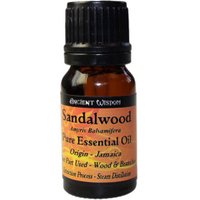VAT Reg No: 317335906
15a St Thomas St
Scarborough
N Yorkshire
YO11 1DY
* Mail Order * Local Delivery * Click and Collect *
Essential Oils: M-S
Here is the list of our current Essential Oils from M to S.
If we don't have the one you are looking for, please get in touch and we will try and stock it
Nutmeg essential oil is obtained by steam-distilling the dried kernels of the ripe seeds of the nutmeg. This fruit is native to Moluccas Island, also known as the Spice Islands, but is also grown in Java (Indonesia), Penang (Malaysia), and Sri Lanka.
The evergreen tree from which nutmeg is derived also produces another type of spice: mace.
The essential oil of nutmeg was used by various civilizations: Indians used it to help treat intestinal problems, while the Egyptians used it for embalming the dead. During the Elizabethan era, nutmeg oil was believed to be effective against the plague and gained great popularity, but with a high price.
Nutmeg oil was also used in Ayurvedic Practises, mainly for treating fever, respiratory problems, headaches, and digestive discomfort. Today, the essential oil is added to soap, candles, dental products, and personal care products.
Nutmeg Essential Oil is commonly used for muscle pain, swelling, inflamation, circulatory problems, skin problems, impotence, low blood pressure, menstrual cramps, sleeping aid, helps dreams become more vivid, respritary problems, anxiety, liver problems, kidney stones, uric acid (gout).
As with all essential oils, ensure that you dilute it before using as in it's concentrated form it is potent and could cause further issues.
Patchouli oil is extracted from the Pogostemon cablin plant of the mint family and has a rich musky-sweet, spicy smell. The plant is native to Malaysia and India, where it is known as 'puchaput'. The word patchouli is derived from Tamil 'pachchai ilai' meaning, simply, 'green leaf.' Patchouli oil is extracted from the young leaves, which are dried and fermented before steam distillation. This oil
improves its fragrance and power with age. It is much valued in skin care, especially in scar healing.
In eastern countries, patchouli oil is used in potpourris and sachets between linen and clothes for the fragrance as well as to keep bedbugs and insects away. The oil is said to have a balancing effect on the emotions and create an amorous atmosphere. When used in an oil burner, it eases anxiety and depression. Used in bath water, it is believed to help skin and scalp complaints, fungal infections, fluid retention, break down cellulite and ease constipation. It has excellent tissue regenerating properties, speeds up healing and fights infections. Thus, it helps acne, eczema, weeping sores, ulcers, and athlete's foot.
It seems that patchouli was placed between Indian cashmere shawls before being sent to Victorian England, to protect the merchandise from moths. Without this signature smell of dried patchouli leaves, the shawls could not be sold in England. In Europe and America, patchouli oil and incense was immensely popular in the 1960s and 70s among the hippies, since the smell of patchouli covered body odour and the smell of burnt cannabis. Patchouli was used as a hair conditioner for dreadlocks. In many Asian countries, patchouli is also used as an antidote to snakebite.
Peppermint essential oil is said to be good for ailments like asthma, colic, fever, flatulence, headache, nausea, chest congestion and vertigo. This oil is supposed to be excellent for mental fatigue and depression, refreshing and stimulating with its menthol content. It is good for the skin and is used in lotions to treat sunburn, itchiness or inflamed skin. It helps fight bad breath and gum infections when used in mouthwashes. When used in an oil burner it is not only therapeutic it also keeps away mosquitoes and other
insects.
Peppermint is native to the Mediterranean but is now grownin other countries in Europe, America, and Asia. Discoveries prove that peppermint has been used since ancient times in Egypt, Greece, Rome, China and Japan. According to Greek myth, a nymph called Mentha was turned, in a fit of anger, into a mint plant by her lover's wife Persephone. According to Pliny, peppermint was used to crown the Greeks and Romans during feasts. It has been used medicinally in England for the last few centuries
The essential oil of the rosemary herb is steam distilled from the flowers, stems and leaves of the plant. According to the the British Pharmacopoeia, the oil distilled from the flowering tops is superior to that obtained from the stem and leaves, which is where nearly all commercial oil are said to be distilled. The smell of rosemary essential oil is woody and herbal and is used in aromatherapy to refresh and stimulate the mind.
This oil is helpful to treat wounds, burns, colds, flu, fatigue, digestive trouble, headaches, asthma, bronchitis, gout, rheumatism, liver and gall bladder problems, water retention and poor circulation. For a massage, rosemary oil is often mixed with a base oil or two like almond, apricot kernel or hazelnut oil. It is good for the hair as it is said to increase circulation to the scalp and promote hair growth. Never use this oil internally, and avoid it if you're pregnant or suffer from high blood pressure or epilepsy.
Rosemary was well known and used in the ancient world. It was believed to improve memory, so it became a symbol of fidelity and was used in weddings, funerals and other religious ceremonies. A sprig of rosemary was tied beautifully with ribbons and handed to wedding guests as a symbol of love and loyalty. 'Hungary water,' made of fresh rosemary tops soaked in wine for a few days was made for the Queen of Hungary and is said to have cured her of paralysis.
Amyris essential oil is also called West Indian Sandalwood oil because its odour is reminiscent of sandalwood. It is obtained by steam distillation from the bark and branches of the Amyris balsamifera tree. Because of its high oil content, this wood burns by itself, like a candle, and is hence called candle wood by the local population. It is a less expensive alternate to pure sandalwood.
This oil has been used to clean wounds, and treat influenza, diarrhoea. It is said to be very effective at alleviating cystitis and vaginal infections. When used in a vaporiser, it helps ease anxiety and tension, insomnia, and acts as an aphrodisiac, relieving impotence and frigidity. It is used to treat coughs and colds, and bronchitis. Its calming properties are said to help during meditation. It is also a muscle relaxant and emollient.
The botanical origin of the tree yielding this oil was unknown until 1886 when the main differences between this plant and true sandalwood were identified by microscopic examination of the leaves. The Amyris balsamifera tree grows wild in Haiti. For their healing and aromatic properties, essential oils were considered more valuable than gold to ancient humans.

